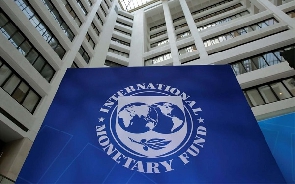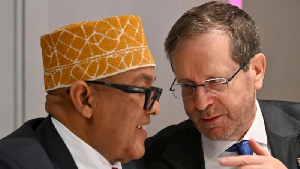Accra, Oct 03, GNA – As Ghana’s Election 2012, considered as crucial for both the ruling and opposition political parties, draws nearer and nearer each passing moment, one critical element required to ensure the sanctity of the outcome hinges largely on the professionalism of the electoral management officials.
Managing the electoral process requires technical knowledge of electoral issues by all stakeholders including political parties, Election Management Bodies (EMB) and the media to ensure the competent delivery of the process.
Professionalism in the management and oversight of all stages of the electoral process must be demonstrated in the planning, operation and the conclusion of elections including the pre-electoral, electoral and post-electoral periods.
Key indicators of professionalism include experience, expertise, objectivity, efficiency, accuracy, commitment and effectiveness, as well as regular and comprehensive briefings with, and hands on training of, election officials and political party operatives at all stages of the election process to understand and appreciate the electoral guidelines.
However, as the electoral discussion heats up, indications are that some elements and commentators from the various political divides are demonstrating either electoral ignorance, or are in a hurry to comment based on ill-informed or by extension mischievous partisan posture.
The Electoral Commission deservedly so, in recent times has become the target of attack from both well-informed and some ill-informed stakeholders to demonstrate their electoral prowess by commenting and providing solutions at every turn of the electoral process.
The attack on EC, whether justified or not, gives rise to the issues of transparency, fairness and all-hands-on-deck approach with every aspect of the processes leading to Elections 2012.
All stakeholders are reminded that all stages of the electoral process must be conducted without violence, intimidation, coercion, corruption, or other conduct that can interfere with the free conduct of the elections in accordance with the values of Electoral Justice.
Electoral Transparency is a core element that involves openness at all stages of election organization, which must include access to relevant information on a timely basis.
It also mandates EMBs to provide justification for decisions and a frank admission and swift correction of any mistakes or oversights so as to inspire confidence and credibility in the system in the minds of all stakeholders.
According to advocates of Electoral Justice, the whole cycle of electoral transparency demands that electoral operations are conducted in a transparent and open manner, and wherever appropriate in the presence of all stakeholders, but not in ways that would put the secrecy of the ballot at risk.
EMBs and all other stakeholders must be conscious of the essence of time. Timeliness must be demonstrated in a manner consistent with the other principles before, during and after the poll and at all stages in electoral management, including resolution of disputes as this is an integral element in Electoral Justice.
The element of time in the administration of justice cannot be ignored, because justice is a time-bound concept and the electoral process is a time-bound operation; therefore any action that seeks to derail any electoral calendar is dangerous.
A timetable for the entire electoral programme consistent with constitutional and statutory parameters is formulated, agreed with the major political parties, is published and is adhered to throughout the electoral process.
Adequate time is allowed for the preparation of an accurate Voters’ Register. The legal framework provides clear time lines for the resolution of election petitions.
At a recent meeting in Accra by the Association of African Election Authority (AAEA) members agreed that contestants in any elections, when criticising the public conduct and the policies of their opponents, must refrain from attacking their personal lives or private conduct and use moderate language towards their opponents while at the same time urging their supporters to refrain from violence and intimidation.
Ghana as a pace setter in the democratic dispensation across the African Continent must show forth and hold high the banner of free, fair and transparent elections devoid of electoral violence and personality attacks.
Where the principles of Electoral Justice have been substantially observed during the whole electoral process, the outcome of the elections will surely reflect the will of the people.
It is then an overriding principle of Electoral Justice that everyone must abide by the outcome; that the outcome must be given effect by the institutions of Government; and that the legitimacy of the result be acknowledged by the international community. ELECTORAL DISPUTE RESOLUTION:
According to an AAEA document made available to the Ghana News Agency (GNA), a contest for political power lies at the heart of a sound political process.
The GNA’s posture is that a sound application of the principles of Electoral Justice will serve to minimise both the risks to Electoral Justice and the impact.
The GNA, therefore, urges all stakeholders that when and where problems of any kind arise it is axiomatic that they are resolved expeditiously, fairly and in ways that reflect the principles of Electoral Justice.
The pressure to win Election 2012 should not cloud our national sense of judgment or pressurize us to rush the operation, with little time to develop the necessary understanding and commitment.
In such circumstances it may be well beyond the ability of national institutions to resolve the major disputes (including widespread violence) that may arise. Fortunately, there are institutions positioned to provide peace advisory services through mediation, political mentoring, advocacy and other good offices. They must get involved in the seemingly electoral antagonism among the various stakeholders.
Opinions of Monday, 3 October 2011
Columnist: GNA














